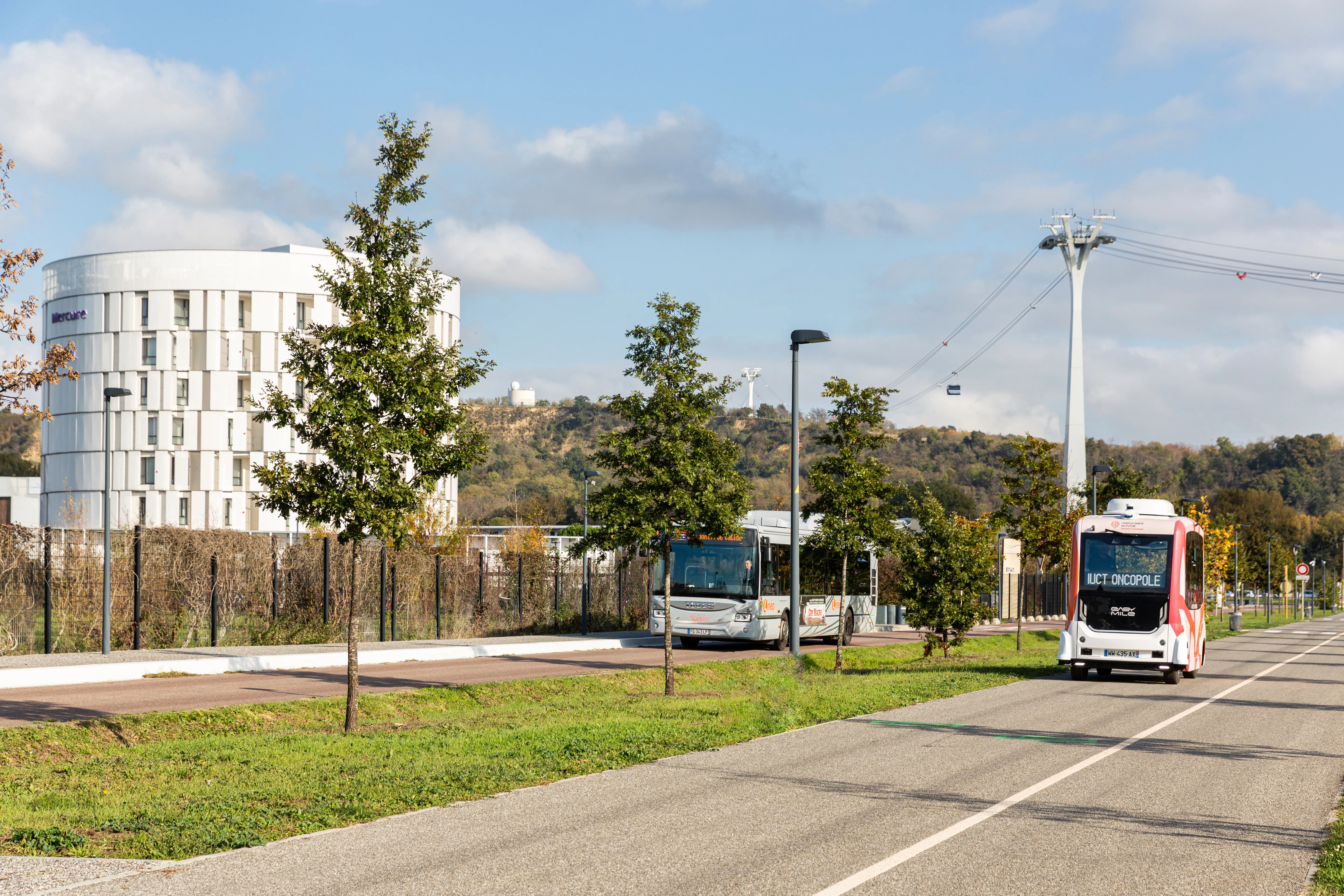The city of Gumi, South Korea is proving that solutions for future energy and transportation problems are happening now, with the online electric vehicle (OLEV), developed by the Korea Advanced Institute of Science and Technology (KAIST). OLEV is an electric vehicle that can be charged while stationary or driving, removing the need to stop at a charging station, nor does an OLEV tram require pantographs to feed power from electric wires strung above the tram route. OLEV receives power wirelessly through the
August 8, 2013
Read time: 2 mins
The city of Gumi, South Korea is proving that solutions for future energy and transportation problems are happening now, with the online electric vehicle (OLEV), developed by the Korea Advanced Institute of Science and Technology (7443 KAIST).
OLEV is an electric vehicle that can be charged while stationary or driving, removing the need to stop at a charging station, nor does an OLEV tram require pantographs to feed power from electric wires strung above the tram route.
OLEV receives power wirelessly through the application of the shaped magnetic field in resonance (SMFIR) technology, a new technology introduced by KAIST that enables electric vehicles to transfer electricity wirelessly from the road surface while moving. Power comes from the electrical cables buried under the surface of the road, creating magnetic fields. A receiving device installed on the underbody of the OLEV converts these fields into electricity.
Following the development and operation of commercialised OLEV trams at an amusement park in Seoul and shuttle buses on the KAIST campus, the city of Gumi is providing an OLEV public transportation service, using two OLEV buses on a 24 kilometre inner city route
Dong-Ho Cho, a professor of the electrical engineering and the director of the Center for Wireless Power Transfer Technology Business Development at KAIST, said: "It's quite remarkable that we succeeded with the OLEV project so that buses are offering public transportation services to passengers. This is certainly a turning point for OLEV to become more commercialised and widely accepted for mass transportation in our daily living."
After the successful operation of the two OLEV buses by the end of this year, Gumi City plans to provide ten more such buses by 2015.
OLEV is an electric vehicle that can be charged while stationary or driving, removing the need to stop at a charging station, nor does an OLEV tram require pantographs to feed power from electric wires strung above the tram route.
OLEV receives power wirelessly through the application of the shaped magnetic field in resonance (SMFIR) technology, a new technology introduced by KAIST that enables electric vehicles to transfer electricity wirelessly from the road surface while moving. Power comes from the electrical cables buried under the surface of the road, creating magnetic fields. A receiving device installed on the underbody of the OLEV converts these fields into electricity.
Following the development and operation of commercialised OLEV trams at an amusement park in Seoul and shuttle buses on the KAIST campus, the city of Gumi is providing an OLEV public transportation service, using two OLEV buses on a 24 kilometre inner city route
Dong-Ho Cho, a professor of the electrical engineering and the director of the Center for Wireless Power Transfer Technology Business Development at KAIST, said: "It's quite remarkable that we succeeded with the OLEV project so that buses are offering public transportation services to passengers. This is certainly a turning point for OLEV to become more commercialised and widely accepted for mass transportation in our daily living."
After the successful operation of the two OLEV buses by the end of this year, Gumi City plans to provide ten more such buses by 2015.








